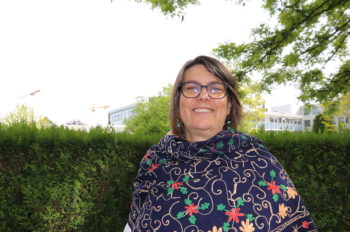
A blog of Elaine Neuenfeldt, Gender Programme Manager
This year the ICPD summit was held in Nairobi, under the theme of “Accelerating the promise”. The Nairobi statement[1], formulated after six months of global consultations, is a framework for both governments and partners’ commitments and it focuses on the so called three zeros: 1) zero unmet needs for family planning information and services; 2) zero preventable maternal and infant deaths; 3) zero sexual and gender based violence, including early and forced marriage and female genital mutilation.
One of the focus of the Nairobi summit was a demand for transparency, accountability and monitoring processes. More than 1200 commitments pledged by governments, civil society, International Organisations and the private sector, need strong and principled mechanisms of accountability to ensure that the promise to achieve gender equality and justice moves forward at a faster pace. The 25 years of the Plan of Action have shown we have made progress, but this is not enough. Sexual and Gender Based Violence is growing –one in three women will experience physical or sexual violence in her lifetime, and the numbers of girls that are married or in an union before even reaching 18 years old is alarming. There is still much work to be done.
Faith-based actors have been strongly engaged in the summit and have proposed recommendations, uniting forces to ensure the realization of the three zeros.
For instance, the interfaith standing committee on economic justice and integrity of creation of Tanzania[2] expressed its commitment to create awareness on Sexual and Reproductive Health and Rights at the congregation level, incorporating sexual and reproductive health messages in sermons. They also committed themselves to ensure that women, girls, men and boys have access to age-appropriate information and services to adequately protect them from unwanted pregnancies, early and forced marriage, sexually transmitted infections and HIV/AIDS.
Another statement,[3] by All African Council of Churches committed “to provide information and services on family planning/child spacing, to all persons, as is consistent with our faith values; to inform and educate our constituencies to eradicate all forms of sexual and gender-based violence, including child, early and forced marriage, as well as female genital mutilation; to inform and educate our constituencies to eradicate all forms of discrimination against any gender, especially women and girls.”
ACT Alliance engaged with the ICPD 25 process issuing a number of statements from the Latino American Gender Community of practice and endorsed by a considerable number of forums. We have also produced a briefing paper which included ACT’s commitments towards ICPD +25.[4] In line with the General Assembly statement on gender justice, ACT affirmed its commitment to “engage in a continuous dialogue to strive towards a change in societal norms, harmful attitudes about gender roles, including masculinities, reproductive choices, human sexuality, child marriage, and stigmatisation of HIV and AIDS for mutual learning and a better realisation of gender justice and sexual reproductive health rights.”
The statement also affirmed:
“We denounce the trends of fundamentalisms (religious, political and economic) which promote messages that are incompatible with human rights and enable the maintenance of power structures that only serve a few privileged individuals and groups. The Gospel according to Luke urges us to be humble and not to regard others with contempt (Luke 18:9-14). For this reason, we also reprehend all speech and practice perpetrated or condoned by those reinforcing sexist stereotypes that go against women’s rights, sexual diversity, tolerance and love.”
The role we have played in ICPD +25 proves that as a faith-based organization we can act as a prophetic voice, able to ground our policies in our practice. We can provide a a faith perspective that affirms life while recognizing and protecting the dignity to all human beings. As global platform ACT will continue working towards promoting awareness and developing strategies to overcome internal resistance towards sexual and reproductive health and rights. This work entails to reflect and open a dialogue able to provoke change in societal norms and attitudes towards traditional gender roles.
Participating in the summit and in the Commission of Population and Development requires opening a process among ACT Members which is based on dialogue, trust, transparency and shared knowledge.
There are loud voices that use faith to push back on human rights, especially women’s human rights. Other voices use theologies and faith to promote hate and segregating, using biblical texts to suit their fundamentalist strategies.
In that context it is imperative for the alliance to commit promoting women’s rights, bodily integrity and agency and contribute to just and equal relationships.
[1] http://www.nairobisummiticpd.org/content/icpd25-commitments
[2] https://actalliance.org/wp-content/uploads/2019/11/ICPD-revised-statement-Final.pdf
[3]file:///P:/Downloads/ICPD%20Statement%20and%20commitments%20of%20FBAs-.pdf
[4] https://actalliance.org/wp-content/uploads/2019/11/ACT-statement-of-commitment-towards-ICPD-Nairobi-1.pdf